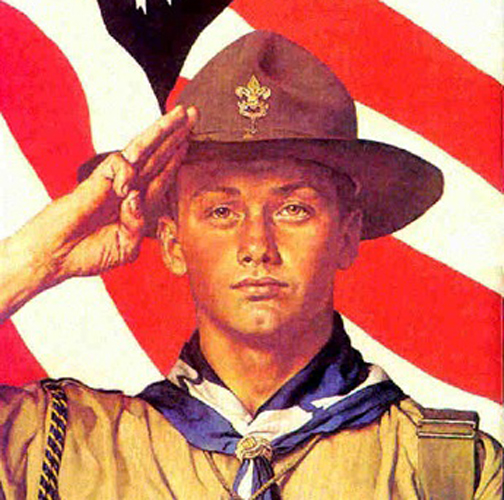The impression is spreading that I have drawn an equation between the American flag and the hammer and the sickle. I’m currently serving for target practice on some right-wing websites, and a group of Tweeters are having jolly fun portraying me as an America hater and worse.
This is the result of one single Twitter of mine, and those who were eager to misunderstand it. Tweets are limited to 140 characters, and here is what I tweeted:
@ebertchicago Kids who wear American Flag t-shirts on 5 May should have to share a lunchroom table with those who wear a hammer and sickle on 4 July.
Now what do you suppose I meant by that? It was tweeted at the height of the discussion over five white California kids who wore matching t-shirts to school on Cinco de Mayo, and were sent home by their school. This inspired predictable outrage in the usual circles.
Tweeted from lonestarag05: Its the USA not Mexico. They are allowed to be proud of their country. I wonder sometimes why you even stay here.
Many others informed me that Americans have the right to be proud of our flag, and wear it on T-shirts. Of course they do. That isn’t the question. It’s not what my Tweet said. What I suggested, in its 108 letters, is that we could all use a little empathy. I wish I had worded it better.
Let’s begin with a fact few Americans know: Celebrating Cinco de Mayo is an American custom. The first such celebration was held in California in 1863, and they have continued without interruption. In Mexico itself it is not observed, except in the state of Puebla–the site of Mexico’s underdog victory over the French on May 5, 1862.
Cinco de Mayo’s purpose is to celebrate Mexican-American culture in the United States. We are a nation of immigrants, and have many such observances, for example St. Patrick’s Day parades, which began in Boston in 1737 and not in Ireland until 1931. Or Pulaski Day, officially established in Illinois in 1977, and not observed in Poland. The first Chinese New Year’s parade was held in San Francisco in the 1860s, and such parades began only later in China. In Chicago this August we will have the 81st annual Bud Billiken Parade, one of the largest parades in America, celebrating the African-American heritage.
I invite you to perform four easy thought experiments:
1. You and four friends are in Boston and attend the St. Patrick’s Day parade wearing matching Union Jack t-shirts, which of course you have every right to do.
2. You and your pals are in Chicago on Pulaski Day, and wear a t-shirt with a photograph of Joseph Stalin, which is your right.
3. In San Francisco’s Chinatown for the parade, your crowd wears t-shirts saying “My granddad was at the Rape of Nanking and all I got was this lousy t-shirt.”
4. In Chicago for the Bud Billiken Parade, you and your crowd, back in shape after three hospitalizations, turn up with matching t-shirts sporting the Confederate flag.
The question is obviously not whether Americans, or anyone else, has the right to wear our flag on their t-shirts. But empathetic people realize much depends on context. If, on Cinco de Mayo, you turn up at your school with a large Mexican-American student population wearing such shirts, are you (1) joining in the spirit of the holiday, or (2) looking for trouble?
I suggest you intend to insult your fellow students. Not because they do not respect THEIR flag, but because you do not respect their heritage. That there are five of you in matching shirts demonstrates you want to be deliberately provocative.
Therefore, you and your buddies should try wearing the hammer and sickle on the Fourth of July. You could try it at a NASCAR race, for example.












